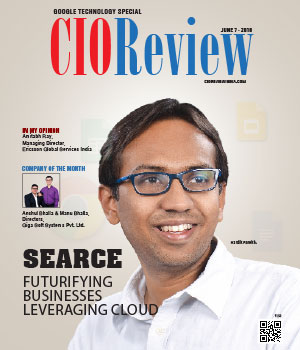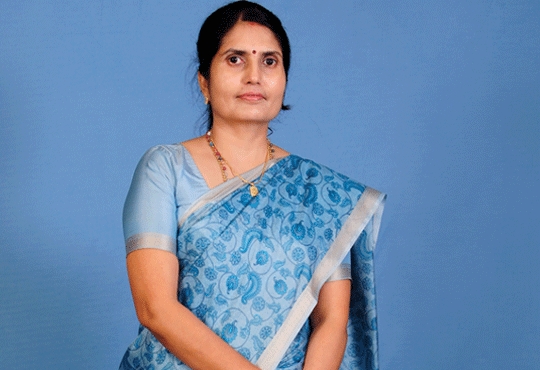
Google unveils new AI model LaMDA, to support natural conversations with machines
CIOReviewIndia Team | Wednesday, 19 May 2021, 09:00 IST
 Google says it has made a new leap in developing conversational artificial intelligence (AI) models, developing a system that can hold its own in natural conversations. The company announced LaMDA during the first day keynote of Google I/O, its yearly developer conference, last night. LaMDA stands for Language Model for Dialogue Applications and aims to replace robotic conversations with AI with more natural dialogues.
Google says it has made a new leap in developing conversational artificial intelligence (AI) models, developing a system that can hold its own in natural conversations. The company announced LaMDA during the first day keynote of Google I/O, its yearly developer conference, last night. LaMDA stands for Language Model for Dialogue Applications and aims to replace robotic conversations with AI with more natural dialogues.
“Language is remarkably nuanced and adaptable. It can be literal or figurative, flowery or plain, inventive or informational. That versatility makes language one of humanity’s greatest tools - and one of computer science’s most difficult puzzles," the company said in a blog post. The company showed demos of how LaMDA works, though one could argue that Google’s choice of subjects in the demos somewhat undermined the system’s utility.
The company showed two demos, with humans having conversations with the planet Pluto and a paper airplane. It’s not quite clear why Google chose these two subjects, but they were meant to show how the system could answer natural questions instead of being stumped when users make generic conversational statements.
In essence, Google is saying it wants conversations with AI to feel more natural, which in turn would reduce the learning curve associated with interacting with such systems. Human conversations are natural, in the sense that we do not reply to a question like ‘hey, how are you’ with the same five responses. You could respond with ‘I’m fine, you?’, or change your response based on whom you’re speaking to, while the other person is capable of comprehending your tone, meaning etc. and response appropriately.
On the other hand, interactions with AI are narrow and limited, instead of free-flowing and open-ended like in real life. “That meandering quality can quickly stump modern conversational agents (commonly known as chatbots), which tend to follow narrow, pre-defined paths. But LaMDA - short for 'Language Model for Dialogue Applications' - can engage in a free-flowing way about a seemingly endless number of topics, an ability we think could unlock more natural ways of interacting with technology and entirely new categories of helpful applications," the company said.
While companies like Google have made significant improvements in this space, AI systems like the Google Assistant still lose the conversational thread far too often. Systems like LaMDA, GPT-3 and BERT are all designed to solve such problems. In fact, Google’s new system is based on the company’s Transformer neural networks, which it built and open sourced in 2017. BERT and GPT-3, too, use the same neural networks.
The utility of LaMDA of machine learning models like this is quite easy to understand as well. For instance, Google can make marked improvements in conversations users have with the Google Assistant (the company’s AI assistant) built into Android phones. More importantly, it could significantly improve how you interact with the Nest Smart Speakers, which are designed to be in-home assistants that work naturally.
At the moment, you have to say wake words like “Hey Google", followed by specific commands like “turn off the lights" and so on. Systems like LaMDA can make such commands more natural, or actually aid conversations with such systems. They can also enhance chatbots and other automation applications, an industry that saw significant growth during 2020.
CIO Viewpoint
Leverage Google Cloud For Productivity-focused...
By Shijo Joseph, CIO, East-West Seed
The Next Billion Internet Users: What CIOS Need...
By Ashwin Rangan, SVP Engineering & CIO, ICANN
Leveraging ERP to Integrate Business Processes
By Beena Nayar, Head-IT, Forbes Marshall
CXO Insights
Cloud Computing: Newer Models To Mitigate Risks
By Sumed Marwaha, Regional Services Vice President and MD, Unisys India
How Right Tools Create Easy Consumer...
By Ganesh Lakshminarayanan, COO, Capillary Technologies
Cloud Data Services Sparking Change In The...




.jpg)




